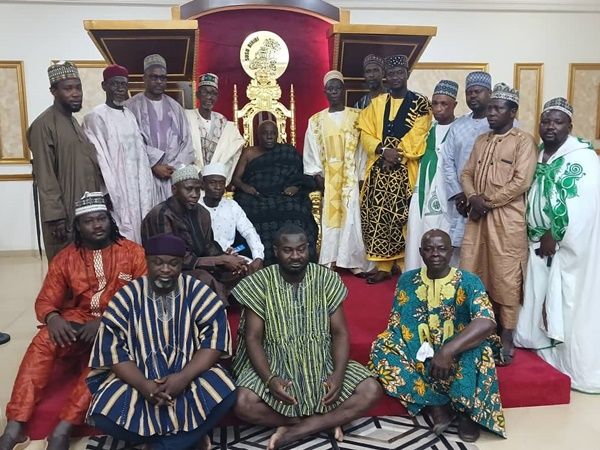
The Minister of Education, Dr. Yaw Osei Adutwum, has stated that Science, Technology, Engineering, and Mathematics (STEM) education is not negotiable if we want to actively participate in the Fourth Industrial Revolution (4IR).
There is a growing sense of urgency to adopt 4IR technologies, such as artificial intelligence (AI), robotics, the Internet of Things (IoT), and data analytics in education. Many advanced countries are far ahead with this agenda, however, developing countries including Ghana are still trying to find their feet in this new era.
STEM has been identified to be vital to the advancement of all societies as it charts a path for creative thinking and research-based solutions to the problems of today and the future; it is the solution to increasing food production and storage; facilitating faster and safer transportation; reduce global carbon emissions; improve healthcare; and promote transparency in governance, among many others.
With this in mind, the government is committed to introducing bold reforms to deliver 21st-century education that will make sure the current crops of students are ready for the job market upon completion.
Adding that the ministry of education and other sector agencies are working assiduously to make STEM education lead Ghana’s transformation and development in the 4IR.
Speaking at the 10th graduation ceremony of the African Institute for Mathematical Sciences (AIMS) at the University of Ghana, Legon, where 58 students including 37 males and 21 females, from 16 countries graduated, the minister expressed that the government is in partnership with the AIMS to construct a model STEM senior high school affiliated to the institute.
He commended the AIMS Centre President, Dr Prince Osei, and his entire staff for their excellent work in supporting the government to enhance creativity and innovation through mathematical science education.
“Last year, the government started working with the Institute on the establishment of the Girls STEM Senior High School which will be affiliated to AIMS Ghana. This school will attract talented females from all over Africa.
This school which is being sited near the soon-to-be-constructed AIMS Ghana campus at Katamanso will be unique as it will nurture talented girls with strong foundations in mathematics,” he said.
This particular project he indicated was part of the implementation of the UNESCO Category II Agreement with the government aimed at mentoring beneficiaries to pursue STEM careers at the highest level.
As part of the commitment to the advancement of STEM education in the country, the government had commenced the development of 20 STEM centres, and 10 model STEM Senior High Schools across the country, which were at various stages of completion.
He explained that the government had worked to improve the science to humanities ratio by 60:40, stressing that the introduction of the one-year pre-engineering programme would further increase the ratio.
Why Ghana Needs to be 4IR Conscious
The 4IR also referred to as ‘Cyber-physical systems (CPSs)’ where technologies take center stage of things, are steadily becoming more integrated into various industries, inevitably affecting the skills requirements for employees.
The digital revolution is transforming the work landscape, organizational operation, and nearly every aspect of human daily lives. This revolution has already taken over homes across both the developed and developing world and it is transforming the way children and young people access information, communicate, learn and even play.
However, this revolution has not transformed the whole educational landscape and it will take some time for it to gain momentum. This will require deliberate efforts backed by policies.









